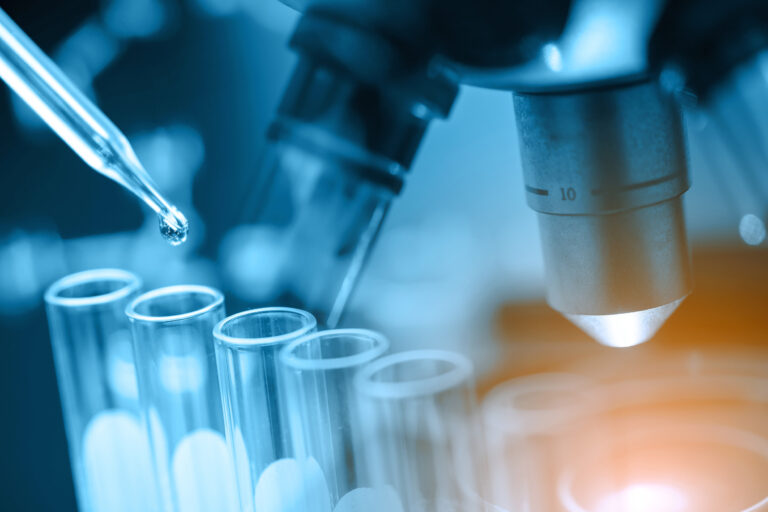There are not many studies looking into the association of endometriosis and thyroid diseases. One study found that Graves disease (hyperthyroidism) was associated with endometriosis, but hypothyroidism was not (Yuk et al., 2016). Another study did not show any increase in prevalence in thyroid disorders among people with endometriosis (it was, in fact, less than the control group) (Petta et al., 2007). However, in another study that was looking into infertility, the researchers found that there was a higher prevalence of positive thyroid antibodies in those with endometriosis (Poppe et al., 2002). There are not enough high-quality studies to give strong evidence to a direct correlation between thyroid disorders and endometriosis. The incidence of endometriosis is estimated to be about 1 in 10 women, while the incidence of thyroid disorder is about 1 in 8 women (American Thyroid Association, n.d.). Thus, there may be significant overlap of the two.
However, endometriosis lesions may respond differently to circulating thyroid hormones. Just as endometriosis lesions have altered estrogen and progesterone receptors (see Role of Estrogen and Progesterone Resistance), endometriosis lesions may have altered thyroid metabolism (Petneau et al., 2019). This altered metabolism can lead to resistance to triiodothyronine (T3) action and local accumulation of thyroxine (T4), which could lead to proliferation of the endometriosis tissue (Peyeau et al., 2019). The study also mentions that “in humans, thyroid disorders are associated with more severe forms of endometriosis” as well as “increased chronic pelvic pain and disease score” (Peyneau et al., 2019). This study further demonstrates that endometriosis tissue has its own unique form and functionality.
References
American Thyroid Association. (n.d.). General Information/Press Room. Retrieved from https://www.thyroid.org/media-main/press-room/
Petta, C. A., Arruda, M. S., Zantut-Wittmann, D. E., & Benetti-Pinto, C. L. (2007). Thyroid autoimmunity and thyroid dysfunction in women with endometriosis. Human reproduction, 22(10), 2693-2697. Retrieved from https://doi.org/10.1093/humrep/dem267
Peyneau, M., Kavian, N., Chouzenoux, S., Nicco, C., Jeljeli, M., Toullec, L., … & Batteux, F. (2019). Role of thyroid dysimmunity and thyroid hormones in endometriosis. Proceedings of the National Academy of Sciences, 116(24), 11894-11899. Retrieved from https://www.pnas.org/content/116/24/11894.short
Poppe, K., Glinoer, D., Van Steirteghem, A., Tournaye, H., Devroey, P., Schiettecatte, J., & Velkeniers, B. (2002). Thyroid dysfunction and autoimmunity in infertile women. Thyroid, 12(11), 997-1001. Retrieved from https://doi.org/10.1089/105072502320908330
Shigesi, N., Kvaskoff, M., Kirtley, S., Feng, Q., Fang, H., Knight, J. C., … & Becker, C. M. (2019). The association between endometriosis and autoimmune diseases: a systematic review and meta-analysis. Human reproduction update, 25(4), 486-503. Retrieved from https://doi.org/10.1093/humupd/dmz014
Yuk, J. S., Park, E. J., Seo, Y. S., Kim, H. J., Kwon, S. Y., & Park, W. I. (2016). Graves disease is associated with endometriosis: a 3-year population-based cross-sectional study. Medicine, 95(10). Retrieved from https://www.ncbi.nlm.nih.gov/pmc/articles/PMC4998884/

